Ecommerce is a serious business since it gives entrepreneurs a cost-effective way to start selling products and services without the need for a physical storefront. When it comes to the best ecommerce platform for SEO there are so many out there to choose from, it can be hard to know which one is right for your venture.
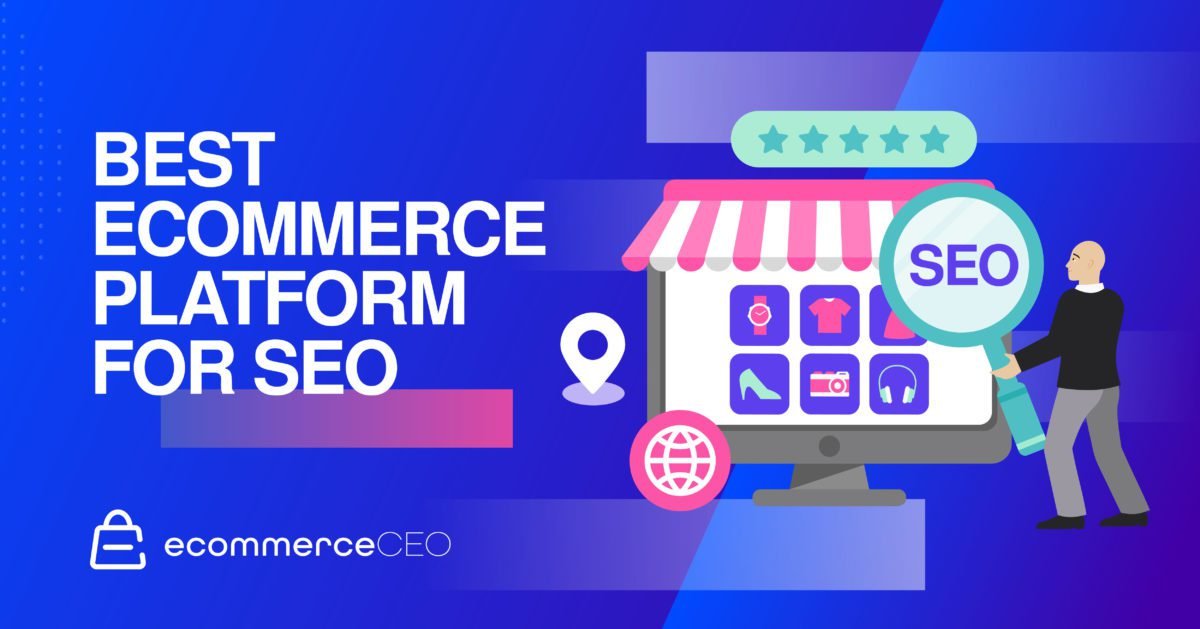
Whether you’re creating your first ecommerce business or starting your 15th, the ecommerce platform you choose has a major impact on your business. From how easy it is for prospective customers to find you, to how smoothly your operations run, making sure you have the best ecommerce platform is key.
When it comes to search engine optimization or SEO, some ecommerce platforms are better than others. We’ve put together this list of the best platforms for SEO to help you narrow down your search for the right ecommerce platform for your needs.
Why Does SEO Matter?
When it comes to finding more customers for your ecommerce store, SEO plays an important role. Where do people go when they’re looking for something online? The search engines! That’s why you need as much search engine visibility as possible.
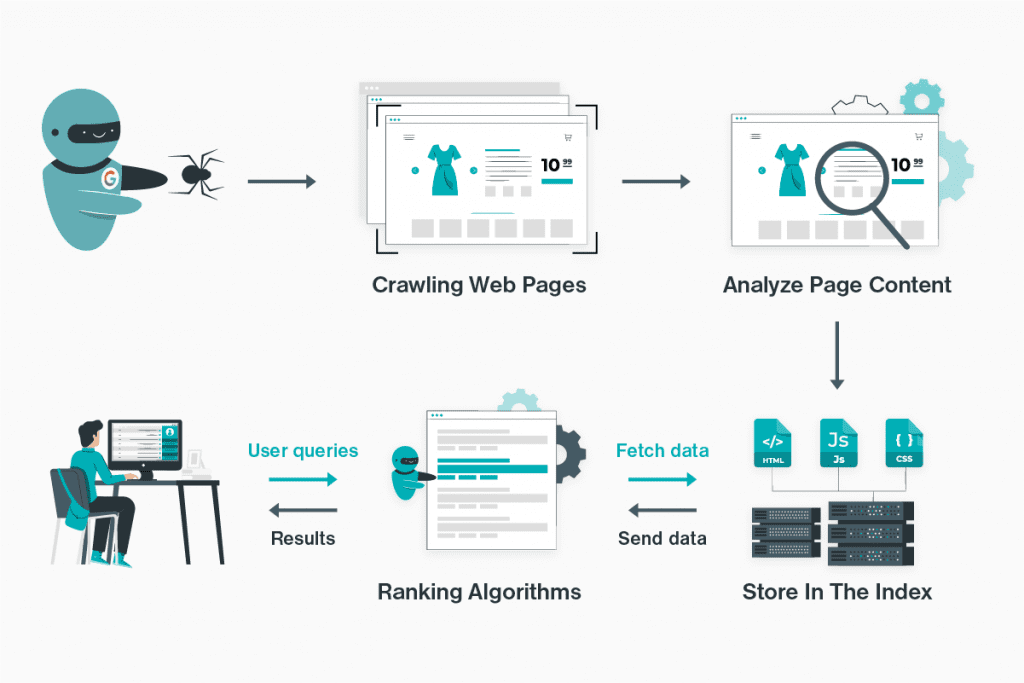
When your products rank higher in the search engine results than the competition, you’ll drive more traffic to your ecommerce site. More traffic translates to more money, so having an SEO-optimized ecommerce store should be one of your top priorities.
Ecommerce SEO considers various aspects of how Google and other search engines rank content, including user experience, keywords, title tags, and meta descriptions, etc. It’s not enough to have basic SEO features that make it easy for you to edit the title, description, and keywords you use on a page.
That said, while all of the ecommerce platforms on the market today know that SEO is important, they don’t all excel at making it easier for their customers. That’s why you need to look out for certain SEO advantages when you’re trying to decide which platform you want to use for your ecommerce website.
| Platform | Performance | Load Time | Mobile Speed | Desktop Speed | Avg SEO Traffic |
|---|---|---|---|---|---|
| Shopify | 3.9 | 1.3 | 63 | 75 | 11717 |
| Sellfy | 3.1 | 1.4 | 46.8 | 72 | 134 |
| Zyro | 3.3 | 2.1 | 51 | 89 | 128 |
| Nexcess StoreBuilder | 4.0 | 1.93 | 53 | 72 | 58,645 |
| ShopWired | 4.3 | 1.38 | 56 | 80 | 717 |
| Pixpa | 2.3 | 1.6 | 22.66 | 65.5 | 72 |
| Freewebstore | 3.5 | 1.89 | 53 | 79 | 927 |
| Ecwid | 3.5 | 5.0 | 50 | 82 | 15,517 |
| Square Online | 2.8 | 2.03 | 1.0 | 3.0 | 65,317 |
| BigCommerce | 4.5 | 2.2 | 63 | 80 | 33626 |
| Woocommerce | 3.1 | 3.4 | 42 | 52 | 72968 |
| Shift4Shop | 3.0 | 2.8 | 50 | 58 | 9703 |
| Volusion | 2.9 | 3.5 | 48 | 56 | 15779 |
| Adobe Commerce | 2.8 | 4.8 | 39 | 43 | 19408 |
| Prestashop | 2.9 | 4.62 | 50 | 52 | 33851 |
| SquareSpace | 3.5 | 3.5 | 42 | 63 | 5678 |
| Wix | 3.9 | 3.2 | 69 | 81 | 543 |
| Weebly | 2.6 | 3 | 49 | 59 | 186 |
Site Speed
The faster your website loads, the better your customer’s experience will be. Data shows that the likelihood a site visitor will bounce away from your site increases 32% if your page takes three seconds to load, compared to a page that loads in one second.
To have control over site speed, you’ll need access to a lot of the details in the ecommerce platform. If you’re leaning toward a hosted solution like Shopify or BigCommerce, you won’t have this level of control. Hosted ecommerce platforms understand the value of site speed. They make every attempt to have their stores load quickly, but like SEO – some are better than others.
These hosted platforms do a great job at keeping you from being bogged down with the technical aspects of running a website, but often fall short when it comes to details like speed. You’ll get something that’s not terrible, but it’s definitely not the best it could possibly be.
A self-hosted solution makes it easier to control the variables that influence site speed, like:
- Browser caching
- Scaling images for separate desktop and mobile experiences
- Optimizing images sizes to minimize load time (many hosted platforms offer this feature)
Ready to give up the idea of using a hosted solution and take care of things yourself? Not so fast. If you host your ecommerce website yourself, you’re in control of speed variables, but you’re also in charge of bandwidth.
If you get a sudden surge of traffic because of some great press, your site may go down as a result of all that traffic. A hosted solution is more likely to be able to handle that bandwidth without any downtime – and it’d be their problem, not yours, anyway.
Canonical Tags
Google uses canonical tags to determine which page on your site is the original source of information. When you add canonical tags to your website, you’re telling Google that “This page of content is duplicate and this is where you can find the original source. We need this duplicate content to support the customer experience, so we’re letting you know to avoid a drop in ranking.”
If you’re not able to control your canonical tags, you could end up with a ton of pages that Google sees as “canonicalized to themselves” even in situations where they aren’t true canonicals.
Take for instance:
You run an ecommerce website selling graphic tees. A customer browses through your catalog and filters out a specific category like “Movie Tees”.
Tee Shirts > Graphic Tees > Movie Tees
This sends the customer to a unique product listing like:
/allshirts?graphics=movies
That’s ideal for the customer. But if the page has basically the same content as the /movie-tees category page, you may dilute your own content as far as Google is concerned. To prevent this, canonicalize the “/allshirts?graphics=movies” to the “/movie-tees” page so that your category page stays in Google’s good graces.
When it comes to hosted ecommerce platforms, you generally won’t have this level of control. In some cases, it may be possible to hire a developer to help you. The good news is, for most small businesses these kinds of issues aren’t something you’ll have to worry about. As your online store grows, though, you may find that your SEO needs become more sophisticated. As that becomes the case, you may find that you need this level of control.
Access to Robots.txt
Robots.txt is the file you use to tell the search engine crawlers about the pages you do and do not want to be indexed. Search engine bots only spend so much time crawling your site – so using Robots.txt to tell Google to ignore pages like your login page – will maximize the crawl budget. This ensures the high-value pages get more attention.
With a hosted platform, you’ll have limited access to this file. Some, though, like BigCommerce, will allow you to make your own changes. Shopify, however, limits your access. For full control, you’ll need a self-hosted solution like WooCommerce on WordPress.
Sitemap Generation
A sitemap is a map of all the pages on your site that search engines use as a reference point. There are two types: HTML and XML. The HTML version is for your website visitors. The XML version is for search engines.
Regardless of the content you want to be crawled and the content you want to be ignored, you should always have an accurate XML sitemap to present to Google. You want to avoid automatically generating an XML sitemap with every page on your site. This approach could easily include the wrong pages – including non-canonical pages, 404 errors, and more.
Depending on the ecommerce platform you use, you may have an XML sitemap by default or you may need a plugin. WordPress requires a plugin, but Shopify includes it as a default. (You can use a Shopify plugin to alter its functionality since it includes all pages by default.)
Batch Uploading
If you’re ever in a situation where you need to fix a ton of pages on your site – whether you need to redirect old pages to new ones, adjust the metadata, or address other issues with your product pages – batch uploading may be the only answer. Without that feature, you’re stuck having to manually update every page individually. That not only takes time but causes the user experience (and likely the SEO) to suffer in the meantime.
When it comes to batch uploading on a hosted platform, you have to rely on plugins. If those aren’t available, the platform will likely require you to upload each file individually via a web interface.
If you’re thinking, “Okay a plugin isn’t a big deal. I can handle that.” consider this: using plugins may have unintended consequences. If you use a plugin that promises to handle everything from redirect analytics to batch uploads… to find that it conducted redirect analytics by running traffic through its URL – it created a mess for your SEO. All you wanted was batch uploading – and instead, ended up with a ton of extra work that caused your SEO to take a hit.
If you’re switching to a new ecommerce platform, and you plan on making a lot of changes that require batch uploading, check to be sure your hosted platform has a trusted and effective plugin available before you make the switch.
You can handle batch uploading with relative ease on a self-hosted platform, but you should plan on hiring a developer to assist you.
Blogging and Content Marketing
Blogging is a great way to add new content to your site on a regular basis. It gives you a chance to inform and educate your customers while targeting new keywords. Many hosted platforms have a built-in blogging feature so that you can keep everything on one platform. If you use an ecommerce platform that doesn’t include blogging and content marketing features, you’ll have to set up a blog on your domain separately.
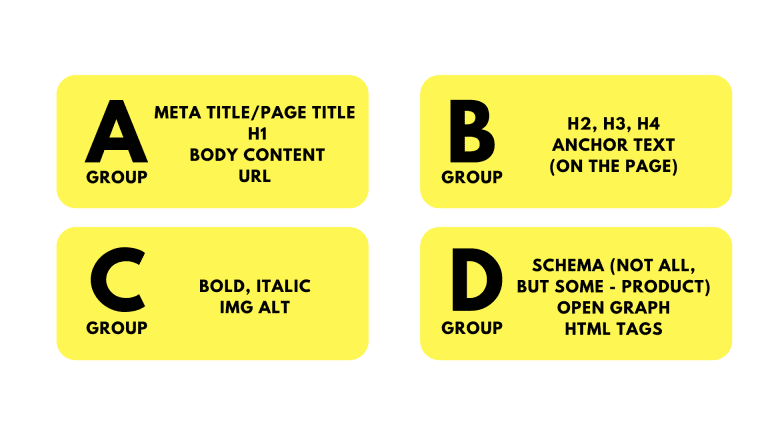
Indexation and Automatically Generated Pages
With ecommerce, specifically Shopify, there may be additional URLs created that are automatically marked as index. The platform uses canonical URLs to handle internal content. Shopify uses the navigational URL for linking to products, instead of the final product URL.
For instance, it uses www.website.com/collections/collection-name/products/product-name (or another navigational path) instead of www.website.com/products/product-name. What this means is that you cannot transfer SEO value to product or category pages to boost their rankings.
Because Shopify automatically generates sitemaps, you cannot remove pages, or make your own edits. For the unimportant pages that you don’t want Google to index, you cannot directly apply the “noindex” tag.
The majority of Shopify themes do not allow content on the category pages below the products. Users can add content above the products, but this negatively affects the conversion rate.
To handle the customization for the majority of SEO in Shopify, you need to hire a developer. There aren’t any Shopify plugins available to take care of these things for you.
This is something you should be aware of since the platform you choose can have so much bearing on your search engine performance.
Other Features for Maximum SEO Benefits
- Your own IP address
- Independent navigation links – something any good ecommerce platform offers
- Independent page titles and meta descriptions – so you can control what information displays in the search results
- Independent image ALT tags
- Independent H1 headings
- Social sharing buttons
- Log file access – so you can see how search engines crawl your site
These features will help you make the most of your SEO efforts, even if you’re a beginner.
How to Choose the Best Ecommerce Platform for Your Needs
Now that you know what features to look for as you shop for an ecommerce platform for SEO – there are a few other things to consider.
What Are Your Overall Business Needs?
SEO is important, but it’s not the only thing you should consider when you evaluate multiple ecommerce platforms. Since SEO is only part of your overall business strategy, it should remain only part of your final decision.
Consider what ecommerce features you need, too. What do you need your website platform to be able to handle for order fulfillment, inventory management, shipping, etc.? What marketing features do you expect your platform to have or at least support? Think about overall functionality as you make your choice.
How Much Control Do You Need?
We’ve already mentioned how much control you’ll need to be able to handle certain things like canonical tags, batch uploading, etc. But just because you need that level of control to address those tasks doesn’t mean you actually need that control. Having the ability to make changes to something you’re not experienced with could do more harm than good to your SEO in the long run.
If you’re a complete beginner when it comes to websites and online stores, then having too much access could be overwhelming. If you’re on a limited budget and don’t have the money for a developer to help you with some of the more technical aspects of your site, then a hosted platform that handles all of that kind of stuff for you is a far better investment.
If, on the other hand, you’re a tech whiz who understands how SEO works and needs the control to handle the finer details, then a hosted ecommerce platform may frustrate you. You’ll be better off with an open-source platform.
What Does Your Existing Website Infrastructure Look Like?
Do you have a development team or a trusted developer who can help you get around bad plugins? In this case, investing in a self-hosted solution may be the best choice. You already have a person or team in place to help you with maintenance.
If you don’t have a developer or team available to assist you, opting for a self-hosted ecommerce platform may be too much for you. A hosted platform can make up for the lack of a developer.
What Does Your SEO Strategy Look Like?
What is your plan of action for SEO? Where do you think you’ll get your organic search traffic? How will a specific ecommerce platform affect that?
Where are your online marketing priorities? If you’re not definitely planning on a strong content marketing strategy, the built-in blogging features on Shopify may be enough for you. There’s always the possibility of migrating to another ecommerce platform later, should your SEO priorities outgrow it.
With that in mind, it’s worth mentioning the hassle of changing from one platform to another. You’ll deal with the expenses of starting over with a new platform. Your SEO may suffer as you make the transition. Your traffic (and thus sales) may also suffer as a result. That’s why it’s best to choose a platform you believe will scale with you as you grow.
The key is balance. You don’t want to spend more than you have to as a startup, but you don’t want to hit the top of a platform and lose money too soon, either. Ideally, you want an ecommerce platform built for growth that can support you as you scale.
Now that we’ve covered what you should be looking for, let’s dive into the leading ecommerce platforms for SEO.
Note: Our ratings are based on tests of 100 websites on these platforms. We earn affiliate income, but that doesn’t influence our rankings. Affiliates can’t buy ratings or influence our scoring system. We work hard to keep things unbiased and objective here at Ecommerce CEO.
1. WooCommerce

WooCommerce is an open source ecommerce platform that runs on WordPress. WordPress is top of the line when it comes to SEO – because the entire platform is built for it. Does that mean you should stop where you are, run out and build your online business on a WordPress site equipped with WooCommerce? Not necessarily.
Open source means free, but a free ecommerce platform does cost money. How?
The software itself is free. You’ll still need to invest in hosting, your own domain name, and an SSL certificate. Quality hosting makes a major difference in how well your store performs – not just in the search engines, but for your overall customer experience, too.
After you install WordPress, you’ll have to download and install the WooCommerce plugin. That’s how you add ecommerce functionality to WordPress since it’s not available right out of the box. You can also add other WordPress plugins and WooCommerce modules to add more features and functionality to your website.
Design and Ease of Use
If you’re familiar with WordPress already, you’ll find WooCommerce a bit easier to understand. If you’re brand new to WordPress sites, too, you may not find that it’s a user-friendly ecommerce platform. You’ll have to spend time learning how to use it. That’s not a bad thing, but it will take time away from driving traffic to your store.
Many WordPress themes are designed to work with WooCommerce. And you can find a variety of WooCommerce themes. While there are plenty of free themes to work with, WooComerce and third-party developers offer premium themes as well.
Features and Integrations
WooCommerce has a ton of SEO-friendly features, including:
- Custom URLs
- Built in blogging
- Access to robots.txt files
- Easily edit independent meta descriptions, titles, and more on product pages, category pages, etc.
Pros
- Software is free to use.
- There’s a large community of developers ready to assist you if needed.
- Strong SEO advantages that give you the ultimate level of control.
- You can sell digital products or physical items.
Cons
- There are a ton of plugins to choose from. While these add more features, you could spend a lot of money on premium options.
- Unless WooCommere developed the plugins, you may run into issues getting the plugins to work well together.
- Quality hosting can be expensive.
2. BigCommerce
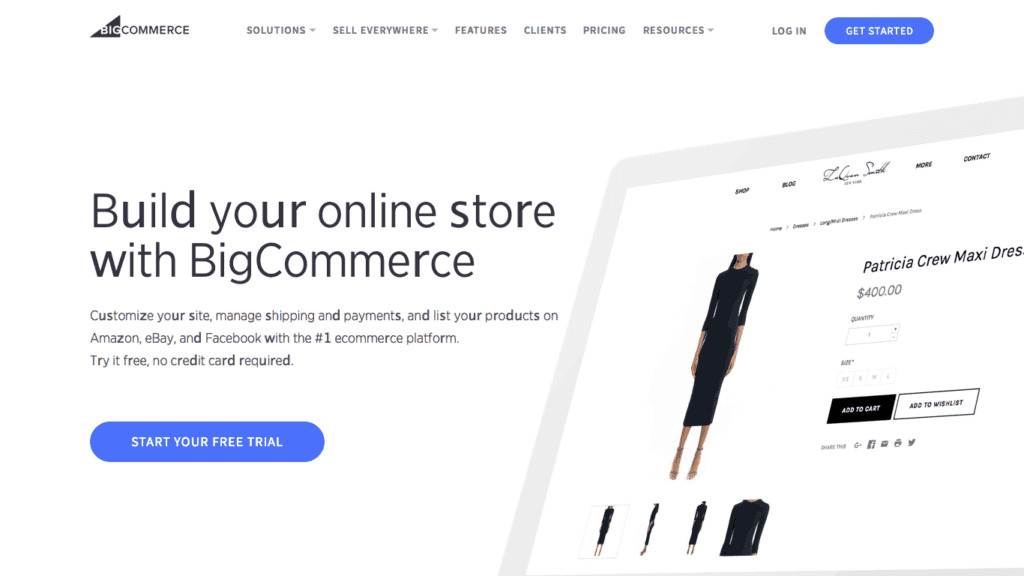
BigCommerce is a popular option, and you’ll find it on many lists of the best ecommerce platforms. Why? Because it works well for a variety of businesses – both large and small.
BigCommerce pricing starts at $39 per month, with the most expensive plan coming in at $399 a month. All the plans include SEO tools to help site owners.
Design and Ease of Use
The BigCommerce platform is incredibly easy to use. It’s one of the most user-friendly ecommerce platforms out there for people with little to no technical knowledge. The great thing is that ecommerce sites built with BigCommerce look highly professional, so ecommerce owners never have to worry about web design.
Features and Integrations
BigCommerce offers a number of essential features not found in other platforms, such as built-in 301 redirects and being able to edit your robots.txt file. You can also edit your URL structure to make it more user-friendly. For instance, instead of yourdomain.com/products/product-name, your URL can be yourdomain.com/product-name.
BigCommerce templates are all responsive, so they can easily adjust to the screen they’re viewed on. Many of the templates also work with Google’s Accelerated Mobile Pages (AMP).
BigCommerce also offers images optimization, so they’re correctly sized for the screen they’re viewed on. This makes them load them faster and helps to improve page speed dramatically.
Pros
- Robust feature set even on the base plan
- Easy to sell in multiple currencies
- Third-party real-time shipping calculations are available on all plans. Unfortunately, this isn’t the case for competitors.
- No transaction fees, even with a third-party gateway
- Plenty of SEO features are built-in
- Free 15 day trial
Cons
- Pages may load slowly.
- No shipping discounts are available.
- The free templates are hard to edit
- The built-in blog doesn’t have an RSS feed.
3. Shopify
Shopify is one of the most popular ecommerce platforms out there. Plans start at $39 a month and go to $399 a month.
While it’s an affordable option for many small businesses, there are some SEO issues to be aware of. But you can overcome them– just know it will be an uphill battle.
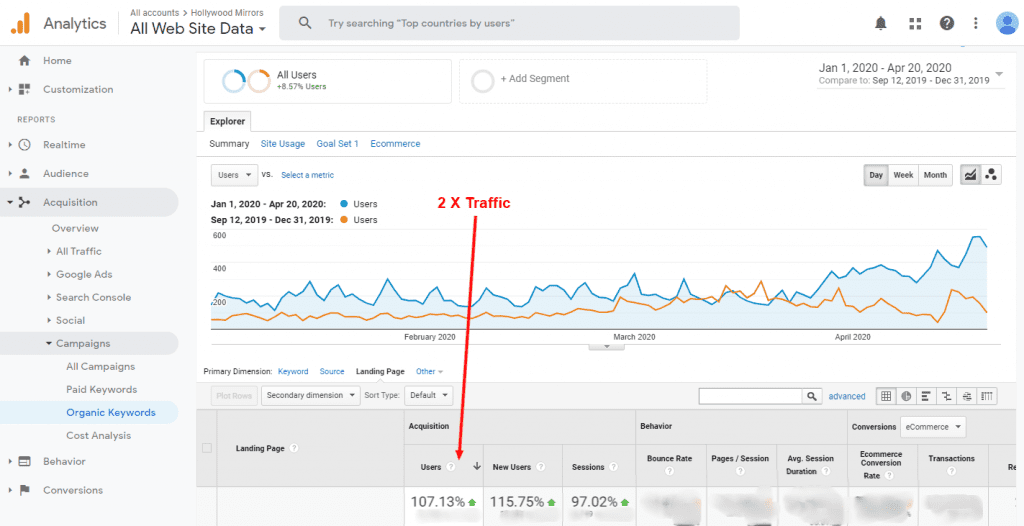
Design and Ease of Use
Shopify is a great platform for people who don’t have technical skills. It’s easy to build a professional-looking store in a matter of a few hours.
There’s a limited number of free themes available – and many of them have the same look and feel, with a few variables changed. There’s no built-in drag and drop editor. If you want a page builder, you’ll have to invest in a premium app in the app store.
Premium themes have a bit more variety since you can find a ton of them from third-party developers.
Features and Integrations
Shopify includes a variety of features and integrations to support ecommerce business owners. Some features that are included in base plans with competitors, like abandoned cart recovery, are only included in the mid and high-tier plans at Shopify.
Shopify has basic SEO tools integrated into its user interface. However, compared to other ecommerce platforms, there is definitely some room for improvement.
You can edit your page titles and descriptions on each of your main pages and product pages. The built-in blogging tool makes it easier for you to target additional keywords to drive organic traffic to your website. You can also create redirects to prevent people (and search engines) from visiting product pages for products you don’t carry anymore.
That said, the Shopify platform can lead to issues such as duplicate URLs and duplicate paginated URLs. The Shopify platform won’t automatically compress images and doesn’t include structured data. That’s why it’s a good idea to compress images with an app. Add the Product, Article, and BreadcrumbList structured data to your site. Many SEO plugins are available in the marketplace to help you extend the features and get better results.
As a Shopify user, you do not have access to your robots.txt file, so you cannot control how Google uses its crawl budget or tell it what not to index.
Pros
- Many SEO features are included out of the box.
- Shopify is lightning fast, with an average load time of just over one second.
- Free 14-day trial
- Works with a wide variety of payment gateways
- Ideal if you also have a brick and mortar store
- Best for dropshipping
Cons
- Shopify’s built-in features can introduce some SEO issues. You’ll need a developer who knows Liquid to assist you with things like adjusting your internal link structure.
- Running too many Shopify apps to get the features you need could cause your site to slow down.
4. Wix

Wix is a popular website builder for beginners since you do not need any technical or coding knowledge. However, in its early days, it didn’t include ecommerce features, and there wasn’t much focus on SEO. Now, it has made improvements to the platform to improve SEO for ecommerce.
There are other ecommerce platforms out there with more advanced features, but Wix is a good option for small businesses. With plans starting at just $27/month, this is an excellent option for those on a budget.
Design and Ease of Use
If you’ve got no design experience or coding knowledge, you can still build something that looks great and is easy for your customers to use. There are fewer templates to choose from, but there’s something for all online shops.
Features and Integrations
All plans include SEO tools and many extras only found in higher-tier Shopify plans like:
- Support for digital products
- Real-time shipping and tracking
- Abandoned cart emails
Wix SEO offers:
- Structured data
- Robots.txt editor
- Canonical tags
- Bulk 301 redirects
- Access to log file
- Image optimization
- Smart caching
- APIs for developers who need a bit more control
Pros
- You don’t need to install third-party plugins or add ons to make SEO work. It’s built into the Wix dashboard.
- No coding knowledge is required.
- You can connect your Wix website directly to Google Search Console and Google Analytics.
Cons
- You can’t export your website to another platform should you decide to switch later
- Pages can be slow to load
- Lots of page duplication with tags and archive pages
Also see: Shopify vs Wix: Which Is Best For Selling Online
5. Squarespace

Squarespace has come a long way since it was first introduced. Initially, it was a hosted website builder and didn’t have any kind of ecommerce functionality. Since it added ecommerce features, it has also stepped up its game in terms of SEO.
The Personal plan doesn’t include ecommerce features, so the minimum you’ll pay every month is $33. You can get a 30% annual discount, which brings the price down to $23 per month for the base plan. If you want customers to be able to check out on your domain, you’ll need to pay for the Basic Commerce plan ($27/month with annual discount), and if you want to be able to sell gift cards and subscriptions, you’ll need the advanced commerce plan at $49/month with the annual discount.
Design and Ease of Use
Squarespace is well known for being a user-friendly platform. It uses a “what you see is what you get” (WYSIWYG) drag-and-drop design platform so you can easily adjust how your website looks without having to know any code.
Features and Integrations
Squarespace includes a variety of SEO advantages, such as:
- Custom URLs
- 301 Redirects
- Editable meta title and meta descriptions
- Sitemap
- Canonical tags
- Structured data
It’s mobile-responsive, which means everything looks great on mobile devices. It has a built-in blogging feature. And, there’s plenty of support from the Squarespace community.
Pros
- Free trial available
- Easy for beginners
- Social media integration
Cons
- A limited number of payment options (Stripe and PayPal)
- Not well suited to SEO beginners.
- A limited number of extensions are available to add features to your store
- Usability suffers. Many users complain about how it doesn’t autosave, and there’s no “undo” function.
- If you’ve got a big website, you’ll find Squarespace lacking. For example, there’s no deep navigation hierarchy.
- You cannot translate your website into multiple languages for an international audience.
6. Volusion
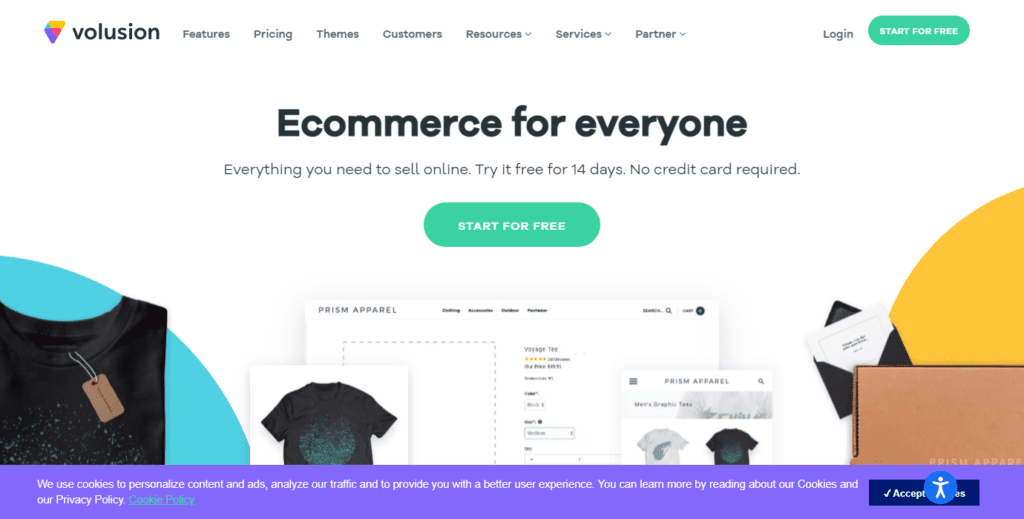
Volusion is another hosted ecommerce solution. Its main competitors are Shopify and BigCommerce. Volusion pricing ranges from $35/month to $299/month, depending on your chosen plan. The plan you purchase determines things such as the number of products you can host in your store and the bandwidth available for traffic.
With the $29/month plan, you’re limited to 100 products and 1GB bandwidth. If you go over your allotted bandwidth, you’ll be charged overage fees. If you have a large product catalog, the $299/month plan allows for unlimited products and 35GB of bandwidth.
Design and Ease of Use
The main selling point for Volusion is how easy it is to use, especially for beginners. Choose your theme, add your products, and let the platform handle the rest.
Features and Integrations
The Volusion feature set is more focused on ecommerce operations rather than marketing. That said, all plans include basic SEO options. These include:
- Custom page titles and meta descriptions
- Image Alt text customization
- Sitemaps
- Custom URLs
- Access to Robots.txt
- URL redirects
- Sitemaps
- Google integrations
Pros
- Free 14-day trial
- SEO tools are available on all plans
- No transaction fees
- Dedicated secure checkout
- Guides and customer support for SEO
Cons
- There is no built-in blog feature. If you want a blog, you’ll have to install it separately.
- Sales limits
- Slow loading times
7. Adobe Commerce, Formerly Magento
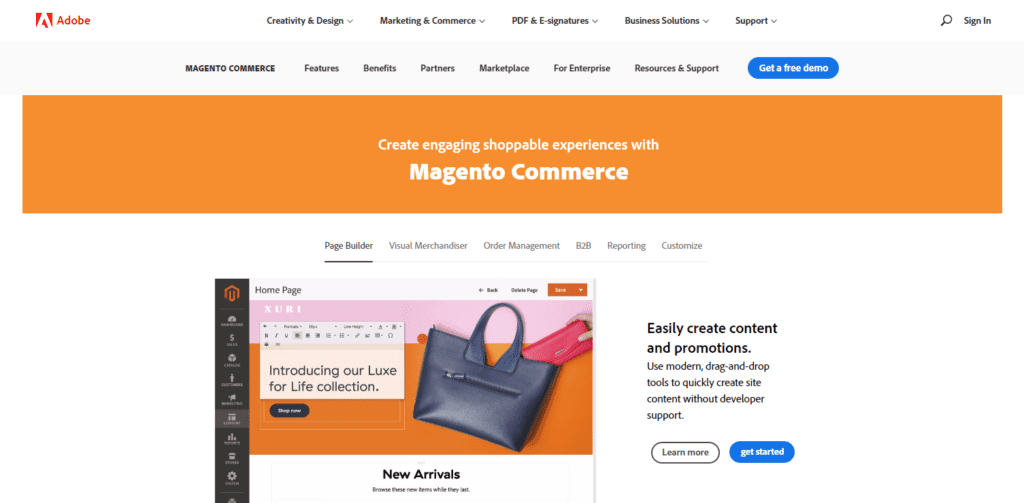
Adobe Commerce is a well-known self-hosted, open-source ecommerce platform. First released in 2008, it was acquired by eBay. It’s now part of the Adobe product suite. It powers so many businesses that it handles more than $100 billion in gross volume every year.
Design and Ease of Use
Adobe Commerce isn’t the most user-friendly platform out there, but plenty of developers can help. Because it is self-hosted, you have a lot of flexibility in terms of what you can do. But if you don’t have technical experience, you’ll have to hire help.
Features and Integrations
Like WordPress and WooCommerce, you can download and install a variety of plugins to add features and functionality to your store.
If you want to make sure your Adobe Commerce store is SEO-friendly, you’ll need to install an extension.
Pros
- Free to use
- Lots of developers to help
- Will scale with you as your business grows
Cons
- There’s a strong learning curve, and it can be too much for the smaller stores.
- Not SEO-friendly right out of the box.
- Some technical knowledge is required.
- Quality hosting can be expensive.
Which Ecommerce Platform Is Best For SEO?
We can provide information to make your decision, but we cannot decide for you. All the ecommerce platforms on this claim to be the best. And truthfully, they are all the best for certain types of ecommerce businesses. What works for Company ABC isn’t going to work as well for Company 123. And that’s okay. What matters is that you choose the best ecommerce platform for your business – for your goals.
We suggest taking two or three platforms from this list based on what you think will be the best for your business plan and SEO strategy. Research them a bit deeper. Sign up for free trials or download and install the software on a test domain. Spend time working with each of them to help you see how they work and whether or not you could see yourself using them. Your personal experience during these tests can help you decide which website builder you want to use.
Which of these ecommerce platforms have you used? Which do you think is the best ecommerce platform for SEO? If you’ve got a few minutes to spare, we’d really appreciate a review. The only way we can continue to keep our reviews unbiased is because of reviews from readers like you.















